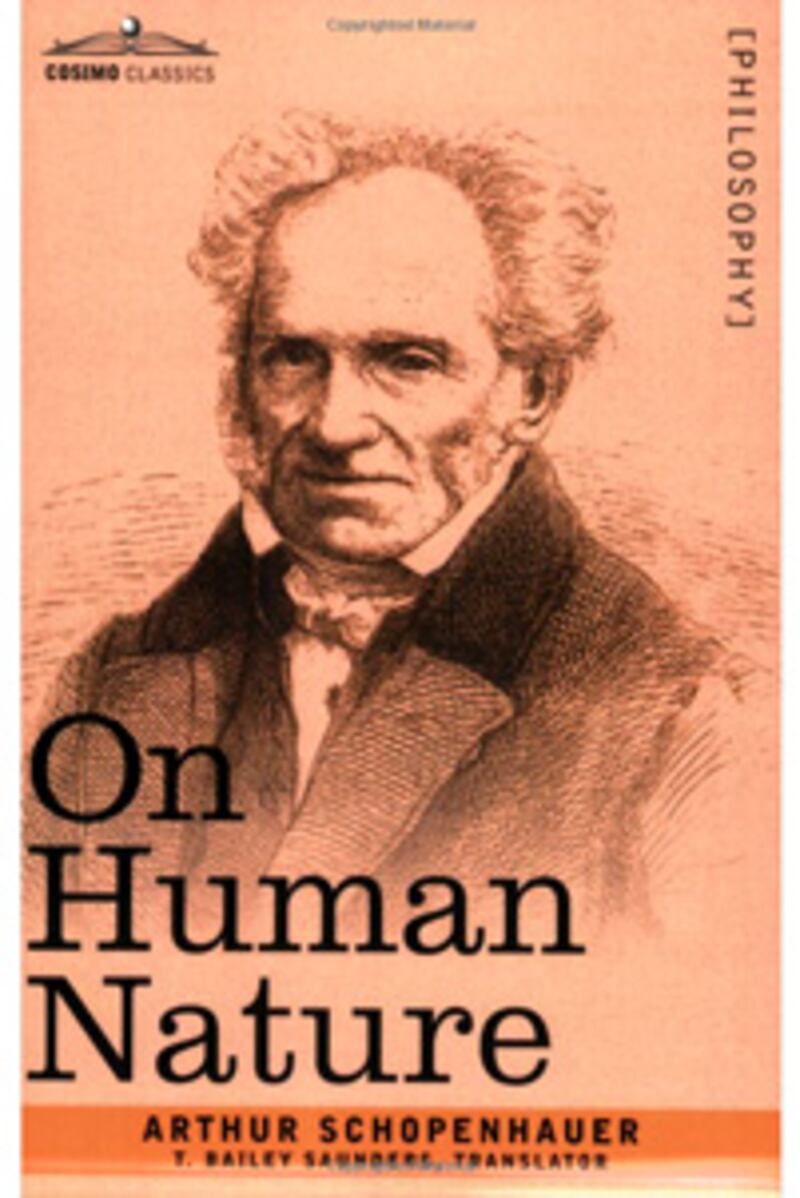As the Republican presidential candidates rumble toward the momentous South Carolina primary—whose winner, since 1980, has won the party’s nomination—we scrutinize more closely these hopefuls, anxiously or optimistically, depending on our political views, and ask the essential question of this election season: “When’s the next train wreck?”
In a campaign so enlivened with scandal, this is not a glib question. The candidate who first crosses the finish line in Tampa’s August heat will likely be the one who simply hasn’t derailed. Herman Cain, the “Cain Wreck” himself, was the first to crash: sexual harassment charges, mistresses around every corner. Rick Perry, who just exited the race, was damaged by a racist sign at his family’s hunting camp and whisperings of drunkenness.
Who’s next? Ominous rumors have surrounded Ron Paul: several articles running in the Ron Paul Political Report during the late '80s and early '90s, signed by Paul himself, suggest that the candidate is a racist homophobe and wild-eyed conspiracy theorist. With a past agitated by marital infidelities, ethics infractions, and dubious connections with Freddie Mac, Newt Gingrich is a walking scandal-bomb, ready to flame out any second. Frontrunner Mitt Romney, whose tenure at Bain has recently come under scrutiny, might be combustible as well.
No need to waste time lamenting how a once-honorable democratic process has descended into a sordid reality show. We are mad for the wreckage. This is an obvious point. Serious news outlets revel in celebrity dirt, knowing scandal sells. The tabloids, such as TMZ, E!, Access Hollywood, Gawker, and Inside Edition, remain extremely popular. So fascinated were we with Charlie Sheen’s epic meltdown that we put him in The Guinness Book of World Records as the man who reached 1 million Twitter followers the fastest.
What is less clear is why we are so enamored of ruin, especially when it comes to the famous. One theory is as convincing as it is wicked: we gawk when the mighty fall because we take glee in their disgrace. This joy in another’s misfortune is schadenfreude, “the worst trait,” at least according to Arthur Schopenhauer, “in human nature.”

I’ll admit to it if you will. I convince myself that I, a morally sensitive being, would certainly never take pleasure in another’s humiliation. But then in my fit of righteousness I come across a headline on Newt’s latest malfeasance, spiced with his notorious hypocrisy. And like a tickle in the throat before a cough or the awful urge to sneeze, it comes: the morbid desire to stare at the shame. I hold back until the last minute, to make the release more intense, and then gape like a teen at his first peep show, enjoying the experience all the more because it’s frowned upon.
Fallen celebrities aren’t the only ones who inspire this unwholesome delectation. We are often secretly satisfied to see our colleagues, even if we like them well enough, miss that promotion or blunder in the board room. (Gore Vidal, who said that “whenever a friend succeeds, a little something in me dies,” would understand.) And though we are probably embarrassed to say so, we can’t help but laugh when the stranger trips in the theater. His popcorn rockets fabulously into the air.
In these more ordinary cases, however, we usually feel too much bad conscience to get a real thrill. Likely the poor soul didn’t deserve his troubles, and then there’s the fear that such a mishap could just as easily happen to us. “But for the grace of God, there go I.”
But when celebs tumble, guilt and trepidation fade fast. There’s no way, ordinary folks that we are, that we’ll ever suffer such operatic crashes as Tiger Woods or Mel Gibson. And surely big shots like these, with their haughtiness and hedonism, have it coming. Stacks of money cushion their falls anyway: bruises heal quicker in the Caribbean, nursed with saccharine rum cocktails.
Once these qualms go, we can indulge our macabre mirth. The pleasures are abundant.
Laura Kipnis, author of How to Become a Scandal, believes that our triumphant stone throwing at the “the excessively privileged and overly lucky” allows us to luxuriate “in the warm glow of imaginary imperviousness that other people's life-destroying stupidities invariably provide.”
True enough. What a relief it didn’t happen to us. But schadenfreude brings another gratification: gloating.
Slinging mud, we often relish the “sudden glory arising from some sudden conception of some eminency in ourselves, by comparison with the infirmity of others, or with our own formerly.” So says Thomas Hobbes, whose definition of all laughter illuminates those moments when we smugly parade past the shrunken giants.
Fallen idols are scapegoats, too, onto whom we can heap aggression, verbal or otherwise, that we might have directed toward ourselves or our neighbors. According to anthropologist René Girard, cultures require sacrificial victims in order to avoid epidemic revenge feuds. Violence lurks in all our hearts, pressing for expression.
Instead of attacking neighbors, why not shunt the wrath onto one poor soul who stands in for all would-be enemies? To deride Tiger is to enjoy catharsis. Disburdening our spirits, the rogue, weirdly, turns saint.
Nothing strengthens a community like “us against them,” the masses, for instance, against the masters (or Masters’ champion). This is yet another attraction of schadenfreude. According to a 2004 article in Science by Brian Knutson, recent studies have demonstrated that when a group punishes another for its own benefit—this is called “altruistic punishment”—the chastisers savor warm fellow-feeling. We know our friends by what they mock, and revenge really is sweet.

More than a builder of morale, schadenfreude might be moral. Philosopher John Portmann claims that it cloaks a legitimate desire for justice: creeps getting what they deserve. As Dante sloshes through the stinking swamps of hell, he celebrates the horrific punishments of the condemned, his seeming cruelty confirming the moral structure of the cosmos.
Mixing righteousness, glowing rapport, purgation, gloating, relief, perverse delight, not to mention sadism, schadenfreude is mostly a muddle of the bad and the ugly, but with enough good floating on top to where we can say to Schopenhauer: it’s OK to gawk, with one eye.
Maybe if you stare long enough at the catastrophe, you might work through your schadenfreude to its opposite: empathy. You might realize that the distance between you and the defamed luminary is not as great as you thought; that you’re just as flawed as he is; that pain is pain, regardless of status; that you need understanding and solace just as much as he does.
And so another kind of joy might ascend from studying misfortune: generosity’s radiance.
The Republicans are stumbling toward the Palmetto State, but this kindness will probably not blossom. It’s too much fun to dish just for the sake of dishing. Still, there might persist beneath the gossip a primary faith that has little to do with the primaries: a faith in democracy without the Democrats, in the republic minus the Republicans. These noble political ideals valorize our similarities as much as our differences, and so remind us that none of us are safe from smash-up. All of us ride the same mystery train.






